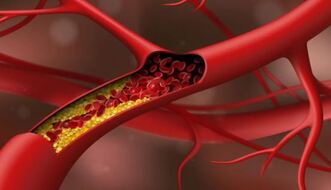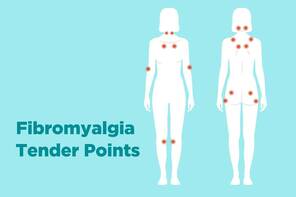 Acupuncture and Chinese Medicine are ancient practices that have been used for thousands of years to help manage a wide range of health conditions, including high cholesterol. In Chinese Medicine, high cholesterol is seen as a sign of an underlying imbalance in the body, and acupuncture and herbal medicine are used to help restore balance and promote overall health. Cholesterol is a fatty substance that is produced by the liver and is necessary for the normal functioning of the body. However, when there is too much cholesterol in the blood, it can build up in the arteries, leading to the development of atherosclerosis, a condition in which the arteries become narrowed and hardened, making it more difficult for blood to flow through. High cholesterol is often associated with lifestyle factors such as a diet high in saturated fats, lack of exercise, and smoking. Genetics can also play a role in cholesterol levels. High cholesterol can increase the risk of heart disease, stroke, and other health problems. Acupuncture and Chinese Medicine can help manage high cholesterol by addressing the underlying imbalances in the body that contribute to conditions contributing to high cholesterol, such as obesity. In Chinese Medicine, high cholesterol is typically seen as a sign of Liver Qi Stagnation, a condition in which the liver is not functioning properly, and energy is not flowing smoothly through the body. Acupuncture can help regulate the flow of energy in the body and promote the proper functioning of the liver. It can also can help reduce stress and anxiety, which can also contribute to high cholesterol levels. Herbal medicine is another important component of Chinese Medicine and can be used to support the treatment of high cholesterol. Some herbs that may be used include Gynostemma, which has been shown to reduce cholesterol levels, and Hawthorn, which can help improve blood flow and reduce inflammation. Diet and lifestyle changes are also an important part of managing high cholesterol. Chinese Medicine practitioners may recommend dietary changes, such as reducing intake of saturated fats and increasing consumption of fruits and vegetables. Exercise, stress reduction techniques, and other lifestyle modifications may also be recommended. Acupuncture and Chinese Medicine can be a valuable tool in managing high cholesterol levels. By addressing the underlying imbalances in the body that contribute to the condition, acupuncture and herbal medicine can help promote overall health and reduce the risk of heart disease and other health problems associated with high cholesterol. It is important to work with a qualified practitioner who can provide individualized treatment recommendations based on your unique needs and health history. Footnote: It is important to note that TCM should not be used as a substitute for conventional medical treatment. Rather, TCM can be used in conjunction with conventional treatment to help manage the condition and improve overall health and well-being.  Fibromyalgia is a chronic condition characterized by widespread pain, fatigue, and tenderness in the muscles, joints, and other soft tissues. The exact cause of fibromyalgia is unknown, but it is believed to be related to abnormal levels of certain chemicals in the brain that regulate pain perception. Fibromyalgia affects 2% of the Singapore population, and it is more common in women than men. While there is no cure for fibromyalgia, acupuncture and Chinese medicine can help manage its symptoms. Acupuncture is a traditional Chinese medical practice that involves the insertion of thin needles into specific points on the body to stimulate the body's natural healing processes. In traditional Chinese medicine, fibromyalgia is believed to be caused by an imbalance of energy or "qi" in the body. Acupuncture can help to restore the balance of qi by stimulating specific points on the body that are associated with the condition. Several studies have shown that acupuncture can be an effective treatment for fibromyalgia. A review of 12 randomized controlled trials found that acupuncture was associated with significant improvements in pain, fatigue, and sleep quality in patients with fibromyalgia. Acupuncture is thought to work by stimulating the release of endorphins, which are the body's natural painkillers. It may also help to reduce inflammation and improve blood flow to the affected areas. Additionally, acupuncture can help to reduce stress and anxiety, which are often associated with fibromyalgia. Chinese herbal medicine is another component of traditional Chinese medicine that can be helpful in managing fibromyalgia. Chinese herbal medicine uses a combination of natural substances, including herbs, minerals, and animal products, to treat a wide range of health conditions. Several herbs have been found to be effective in reducing pain and inflammation in fibromyalgia patients. One herb that has been studied extensively for its use in fibromyalgia is curcumin, which is the active ingredient in turmeric. Curcumin has been shown to have anti-inflammatory and antioxidant properties and may help to reduce pain and stiffness in fibromyalgia patients. Other herbs that have been studied for their use in fibromyalgia include ginger, ginseng, and chamomile. In addition to acupuncture and Chinese herbal medicine, other traditional Chinese medical practices can be helpful in managing fibromyalgia. These include tai chi and qigong, which are gentle forms of exercise that focus on breathing and movement. Both tai chi and qigong have been found to be effective in reducing pain and improving quality of life in fibromyalgia patients. Dietary changes can also be helpful in managing fibromyalgia. In traditional Chinese medicine, certain foods are believed to be "cooling" or "warming" and can affect the balance of qi in the body. Fibromyalgia patients may benefit from eating more warming foods, such as ginger, cinnamon, and turmeric, and avoiding cooling foods, such as dairy products and raw fruits and vegetables. In addition to dietary changes, lifestyle modifications can also be helpful in managing fibromyalgia. Stress reduction techniques, such as meditation and deep breathing, can help to reduce stress and anxiety, which are often associated with fibromyalgia. Regular exercise, such as walking or swimming, can help to improve muscle strength and reduce pain and stiffness. In conclusion, acupuncture and Chinese medicine can be effective in managing the symptoms of fibromyalgia. Acupuncture can help to restore the balance of qi in the body and stimulate the body's natural healing processes. Chinese herbal medicine can help to reduce pain and inflammation in fibromyalgia patients. Other traditional Chinese medical practices, such as tai chi and qigong, can improve muscle strength and reduce pain and stiffness. Dietary changes and lifestyle modifications, such as stress reduction techniques and regular exercise, can also be helpful in managing fibromyalgia. In conclusion, fibromyalgia is a chronic condition that can be difficult to manage, but acupuncture and Chinese medicine offer a safe and effective complementary approach to treatment. By restoring the balance of qi in the body and reducing pain and inflammation, acupuncture and Chinese herbal medicine can help to improve quality of life for fibromyalgia patients. Additionally, dietary changes, lifestyle modifications, and other traditional Chinese medical practices can be helpful in managing symptoms and improving overall health and well-being. Footnote: It is important to note that TCM should not be used as a substitute for conventional medical treatment. Rather, TCM can be used in conjunction with conventional treatment to help manage the condition and improve overall health and well-being. |
About UsAt Singeast TCM, we provide comprehensive diagnosis and personalised TCM treatment services at the convenience of your home.
Contact UsTo make a home visit appointment, reach us by the phone number or QR code below.
Archives
May 2024
ALL RIGHTS RESERVED © SINGEAST TCM
|



 RSS Feed
RSS Feed
